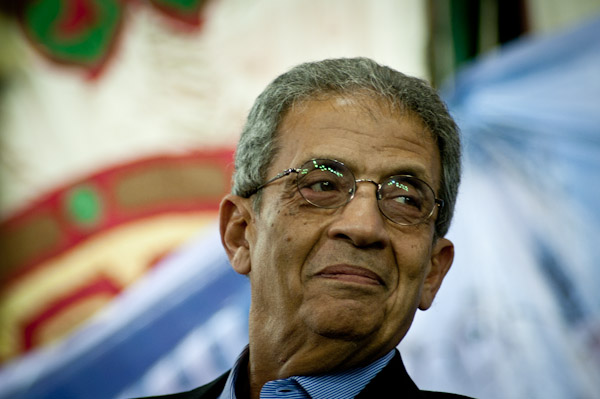As Egypt enters the peak of summer, there is a shadow economy that few dare to discuss: “Seasonal” or “transactional” marriages between Egyptian women and wealthy men from Arab Gulf countries. These marriages, which often involve women below the legal age of 18, are temporary and illegal marriage contracts and one of the most common forms of human trafficking in Egypt.
Transactional marriages are considered a form of human trafficking because women are recruited and sold for the purpose of sexual exploitation internally or across borders. The practice may not necessarily be associated with force, fraud or coercion.
Human trafficking violates Egypt’s laws and international agreements which the government of Egypt has signed.
“We do have a protection framework, but we need enforcement in reality,” says Azza El-Ashmawy, director general of the National Council for Children and Motherhood (NCCM) and the director of the NCCM’s Anti-Trafficking-in-Children Unit.
In 2010, the unit published a survey on child marriages to non-Egyptians, which was based on a sample of 2000 people in different areas of 6th of October Governorate. According to the report, 81 percent of non-Egyptian spouses come from Saudi Arabia, followed by United Arab Emirates, Kuwait, and Jordan.
Two thirds of respondents said that the rate of child marriage to non-Egyptians was increasing mainly because of large dowries paid by foreign spouses.
Poverty and low income are in fact one of the main reasons leading to temporary marriages; 64 percent of respondents pointed out that such marriage take place with the girl’s consent.
The 2011 Trafficking in Persons Report, which was released last June by the US Department of State, stressed that the Egyptian government should urgently implement the 2008 child trafficking law and the 2010 anti-trafficking law “to substantially increase law enforcement activity against all forms of trafficking.”
The 2008 child trafficking law forbids child marriages, states that “documenting a marriage for couples whose age is less than 18 full calendar years is not permissible,” and prescribes sentences of at least 5 years for violators. In addition, the 2010 anti-trafficking law forbids all forms of human trafficking, such as child labor, domestic services that involve exploitation, the use of children in begging activities and trade in child organs, in addition to seasonal marriages. The law also prescribes penalties from 3 to 15 years’ imprisonment and fines ranging from US$9,000 to US$36,000.
“The government of Egypt does not fully comply with the minimum standards for the elimination of trafficking in persons,” the report says.
The 2010 anti-trafficking law allows prosecuting cases of sexual exploitation, according to Kristin Dadey, counter-trafficking program manager at the International Organization for Migration (IOM).
The IOM works in partnership with the National Council for Childhood and Motherhood (NCCM) and with the Egyptian government to combat human trafficking.
“We’ve been working for the last few years with the Ministry of Interior and Justice. With NCCM, we established shelters accessible to foreign female victims of human trafficking in addition to Egyptian victims, as part of the implementation of the 2010 law,” Dadey says.
At a national level, trafficking in children is defined in Article 291 of the Penal Code. Girl-marriages are forbidden by the amended Child Law 12/1996, which states that ‘documenting a marriage for couples whose age is less than 18 full calendar years is not permissible.”
Although child marriage is criminalized under the civil code, it often occurs thanks to the role of brokers, matchmakers and lawyers who certify the marriage even if it is illegal.
“Transactional marriages are not coercive most of the time,” Ashmawy says. “I saw more than one underage girl literally running after Arab men hoping to marry them. It’s a cultural and poverty problem.”
The parents and the girl-child are often persuaded by presents given by the foreign spouse, and the chance to escape from impoverished conditions.
Mariam, 27, whose name has been changed to protect her identity, is currently married to an Egyptian, but maybe not for long.
“I have two young kids. My husband doesn’t take care of the family and he doesn’t allow me to work. As a consequence, I can’t divorce because I’m not economically independent,” she says. “If I could divorce, I’d choose a temporary marriage.”
As, Abeer Ali, project manager at the Fustat Association, an NGO that cooperates with NCCM, tells Al-Masry Al-Youm: “ If the women marries a non-Egyptian and the couple lives in Egypt, she is usually obliged to use contraceptives to avoid pregnancy until the husband escapes and travels abroad, abandoning her. In the second case, if the husband goes back to his country with the girl, he takes her kid and abandons her, after exploiting her and making her pregnant.”
In both cases, this type of marriage is not for the aim of forming a family. The spouse’s reason to marry – sexual pleasure – dooms the marriage from the outset, with the woman frequently falling back on prostitution once the marriage is over.
Nevertheless, many girls are still looking for these arrangements, seeing them as a way out of poverty. “Women don’t learn from others’ experience,” Ashmawy explains, “because money makes them eager to do it in spite of all.”
Ashmawy mentions the case of a girl who wanted to marry an Arab man to enhance her social position through the dowry and eventually marry anyone she wished after divorcing.
Such mistaken beliefs psychologically devastate the girl, who is exploited and deprived of her kids. She might suffer sexual violence or other forms of physical harm and illegal practices. In addition, if she is abandoned during the pregnancy, the child can’t be registered because of the marriage’s illegality.
“We need to combat the factors leading to it, such as illiteracy, poverty, traditions and customs as well as behaviors and attitudes,” Ashmawy says.




